We Moved From A BTO Flat To An Executive Apartment: Here’s Why
January 9, 2021
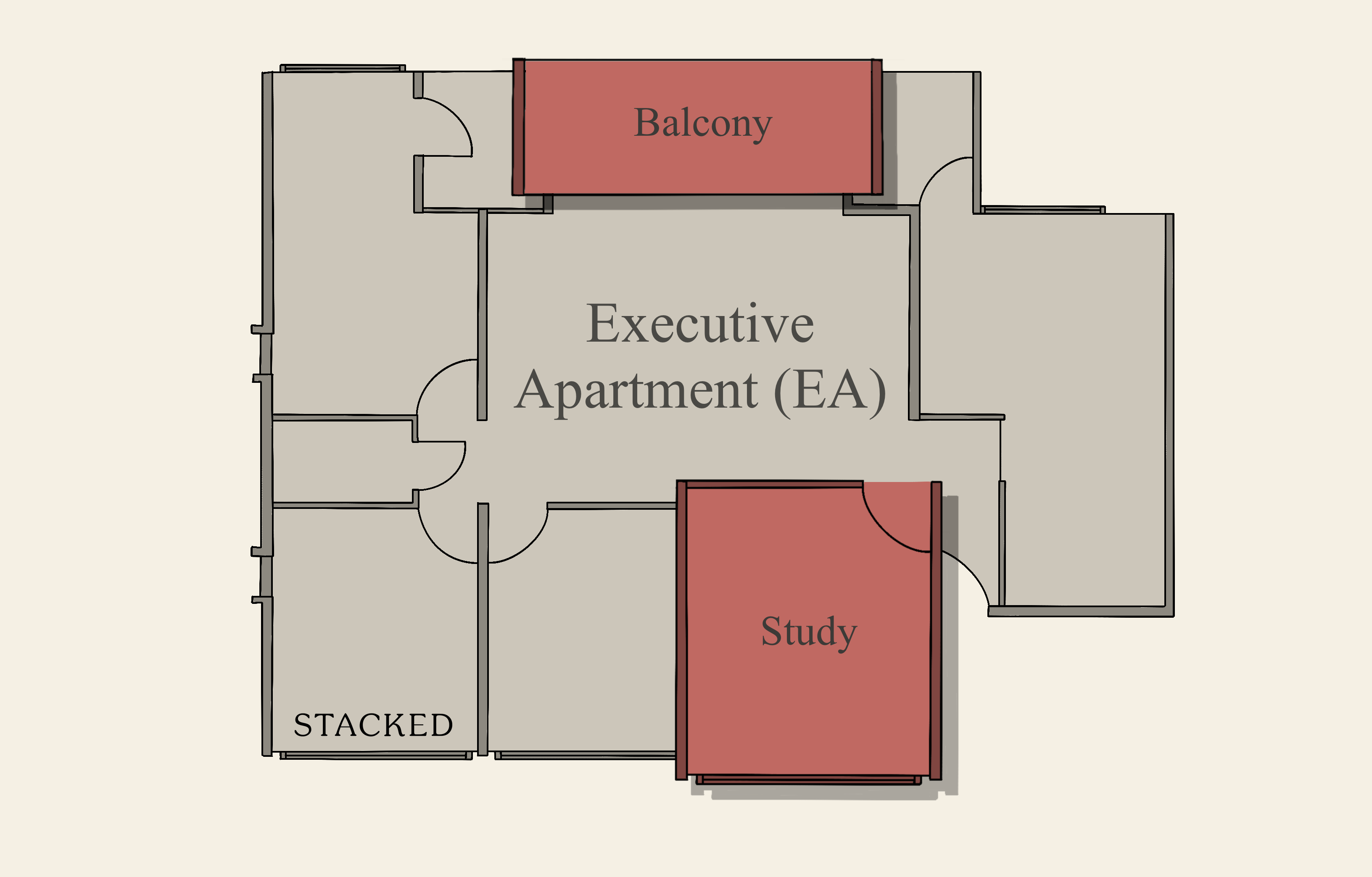
If you’re old enough to remember the 1980’s, you might recall Executive Apartments (EAs) were all the rage of the time; you might call them the ECs of their day. These were even larger than 5-room flats, and may have paved the way for the later jumbo units.
These EAs are still around today; and for some home buyers, they represent a better alternative than ECs or just a bigger resale flat. This week we spoke to Mr. Matthew Kumar, on his family’s decision to move into just such a flat, instead of the more common upgrading options. For those of you looking to upgrade the coming here, you may find an Executive Apartment the right choice as well (if you can find one for sale!)
Special thanks to Mr. Matthew Kumar, for sharing his home ownership journey with us.
What is an Executive Apartment?
An Executive Apartment is a flat type that first emerged in the 1980’s. They were “plus sized” 5-room flats, coming with extra space for a study / maid’s room, and sometimes a balcony. Many EAs are around 1,400 sq.ft., although there are some that go over 1,900 sq. ft.
As of December 2020, Square Foot Research indicates an average price of $429 psf for EAs:
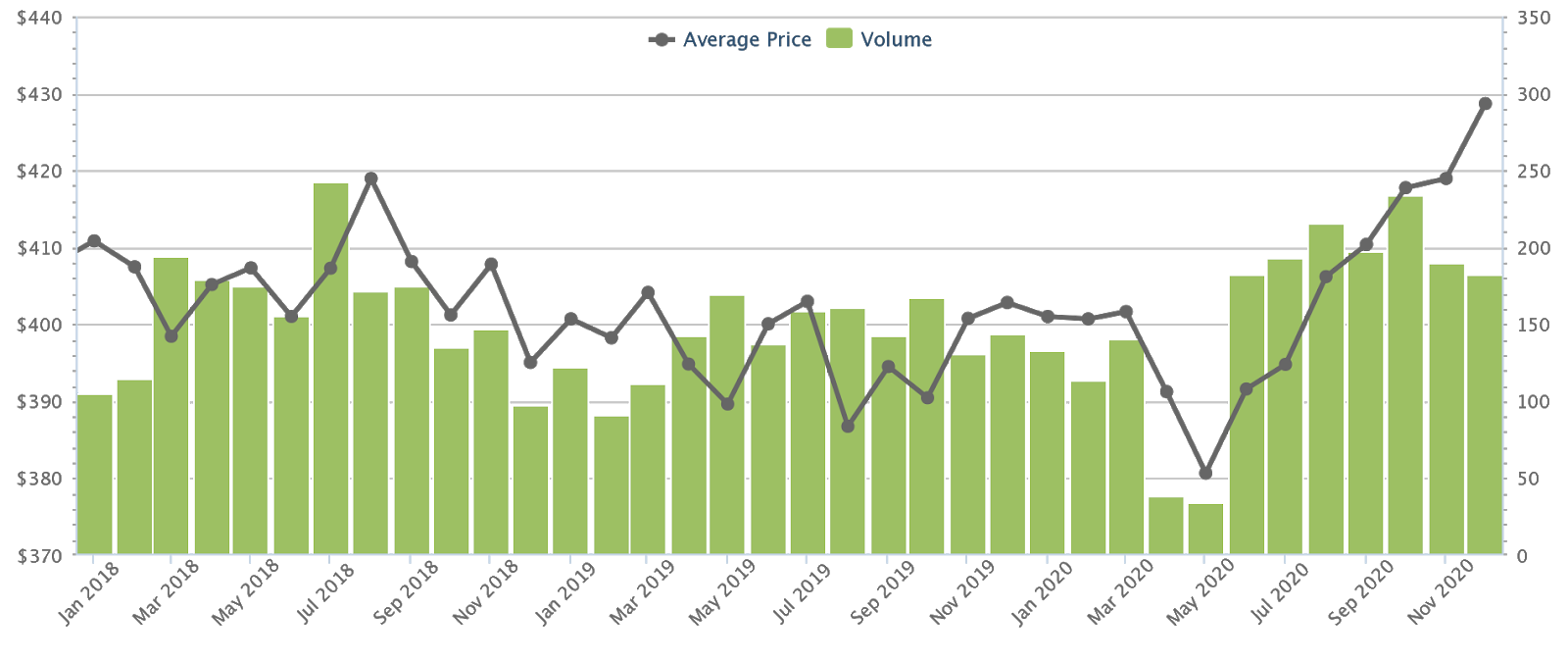
From BTO to Executive Apartment: the first leg of asset progression
Matthew and his (at the time) fiancé began with a BTO flat in Sengkang; but they already had plans for asset progression. These days, BTO flats are a less common starting point for upgraders – many aim to start with a resale flat, so they don’t have to add the construction time on top of the Minimum Occupation Period (MOP).
But Matthew says that: “We had initially wanted to purchase a resale flat; but back in 2013, the COV for resale flats was something we could not afford.”
(Cash Over Valuation, or COV, is the difference between the selling price and the actual valuation of the flat. In 2012, 4-room flats often had COV amounts exceeding $33,000. You can read more about COV in our earlier article).
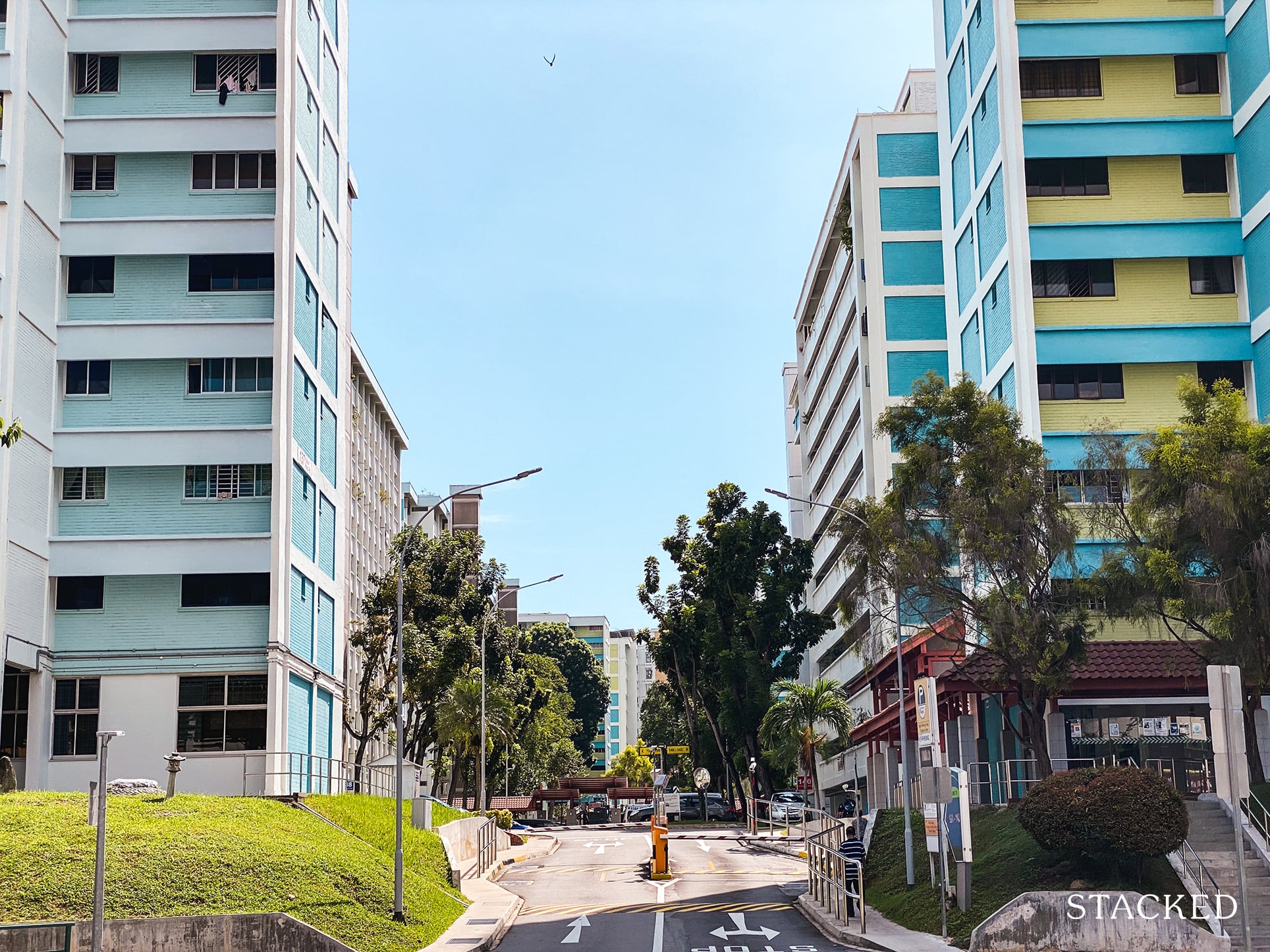
Property Market CommentaryWhat Is Cash Over Valuation (COV) And Why Would You Pay It?
by Ryan J. OngAs such, the BTO was a good first property “given that we had just started working, and were still dating at that time. We also wanted to take advantage of the grants available, given our income.”
Matthew and his then-fiancé settled on a BTO unit in Fernvale Lea, in 2012. This was a 5-room unit at just over 1,216 sq. ft. The couple purchased it for $338,000, with a $20,000 grant.
“We only paid $318,000,” Matthew says, “Which we thought was a good deal. Our family also shared that it is always better to buy the biggest flat we could afford.”
The low cost of the 5-room flat was because, at the time, “the estate was mainly surrounded by empty plots of land, as the Jalan Kayu / Sengkang West area was not developed yet. Amenities such as Seletar Mall and the many ECs such as High Park Residence only came up much later..”
Matthew and his fiance got married in 2013, and were able to collect the keys by 2015. Even then however, they had asset progression plans in mind; and they had the key factors addressed.
“We had the intention to sell after MOP, and we knew that we had to return the grant money with interest back to our CPF. But that was perfectly fine with us, as we were planning to use back our CPF for the second property, ideally a resale flat.”
The end-point of this asset progression would be a private property.
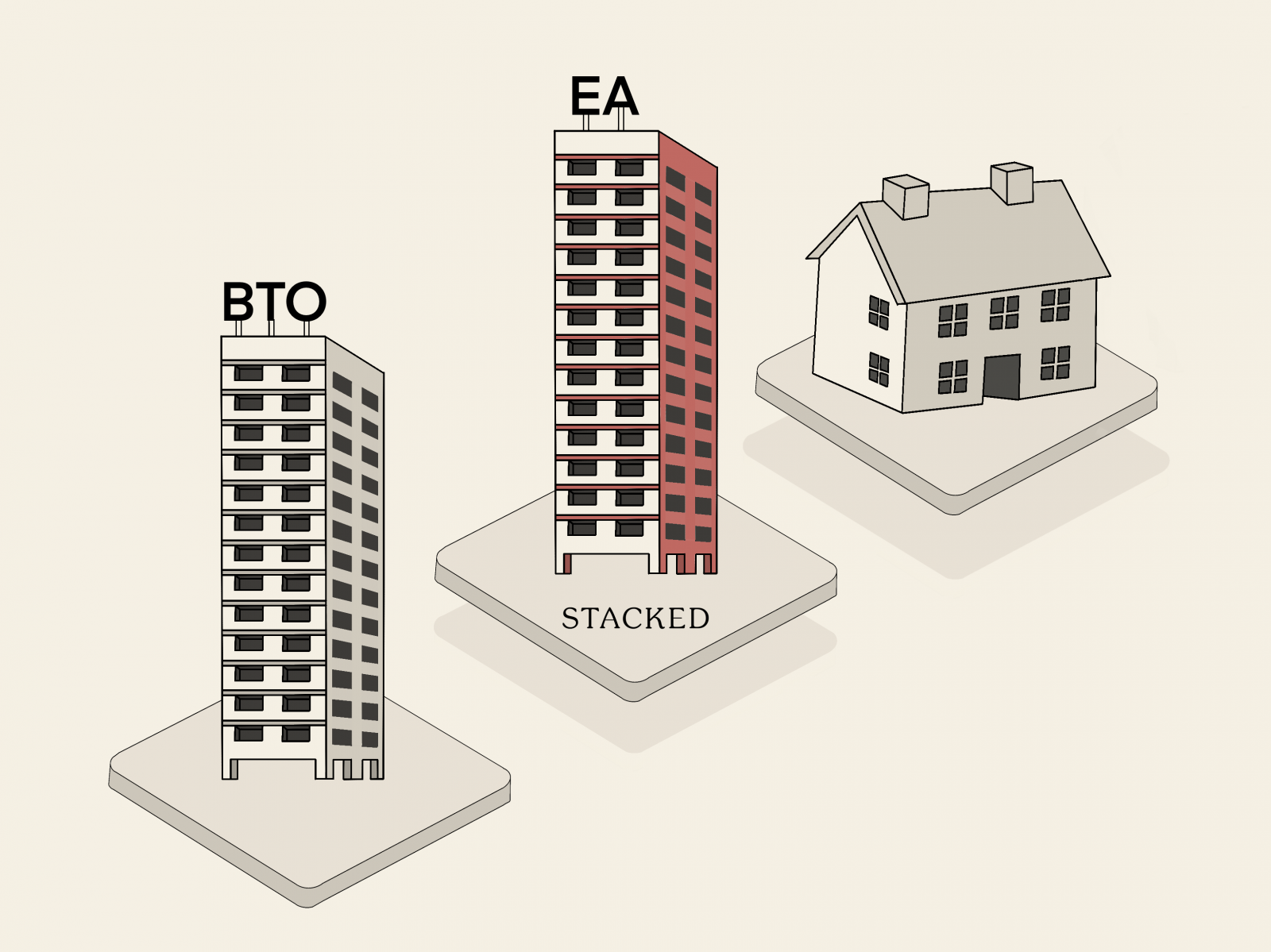
Matthew and his family are eyeing landed or strata housing as the end-goal, as they value bigger space over location; and they would like to experience living in a landed home at least once.
So when they moved from their BTO flat to the EA, it was on to the second stepping stone.
Deciding on an Executive Apartment over other property types
For most Singaporeans, the next step from their BTO flat is an Executive Condominium (EC), or a smaller private condo unit. But Matthew didn’t find many such units that met his family’s requirements:
“We did not consider private condominiums or ECs, as we felt that the standard apartment “L-layout” was rather common, and did not offer much space. (especially the narrow walkways leading to the bedrooms). Even a 4-bedroom condo did not offer us a premium space in the living / dining area.
We wanted an open, spacious layout with four bedrooms, which we realised that only Executive Apartments could offer, and we also wanted to move back closer to the parents; so we decided on an EA in Tampines”.
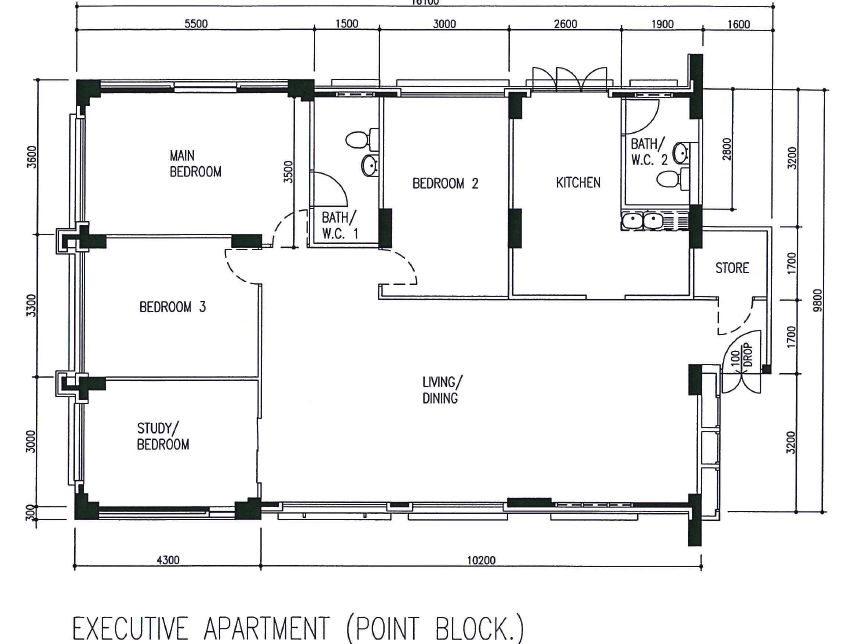
While Maisonettes (double-storey HDB units) were also an option, they were taken off the cards for safety reasons; Matthew didn’t want to risk the young children on the stairs.
Why pick an Executive Apartment?
Matthew describes seeing the Executive Apartment as “love at first sight”.
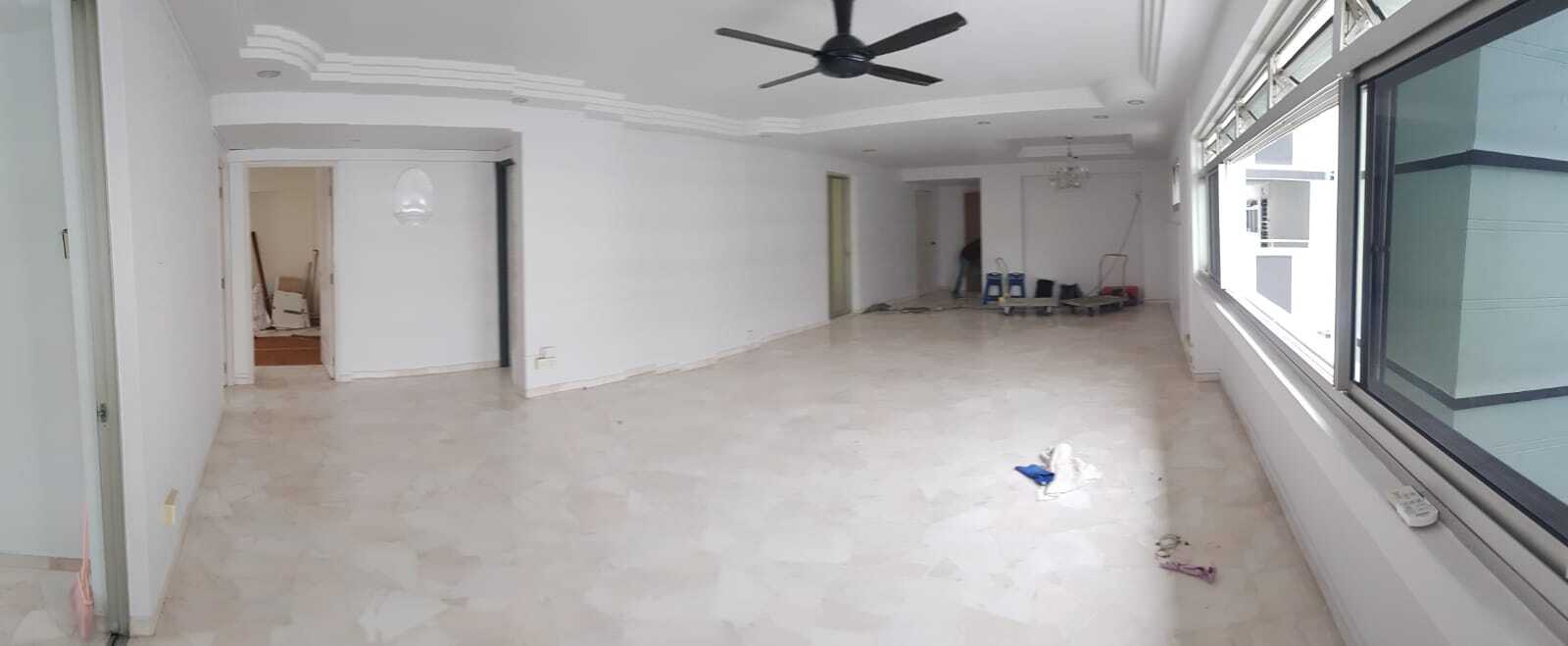
“We love the open layout, we don’t like walls separating the living / dining area, kitchen, and so forth. It’s 148 square metres* built-up, with another three-square metres of private space outside our flat. And our neighbours are far apart, which offers privacy.”
*Approx. 1,593 sq. ft.
“The key attraction is the “private feeling” as the lift opens right in front of my flat entrance. I cannot see my neighbours, so it has full privacy, and a fun fact is I can do a 2.4km run by doing 80 lap rounds around my living area.”
Matthew’s EA has 10 to 12 metres continuous length, given the open concept and no impending walls.
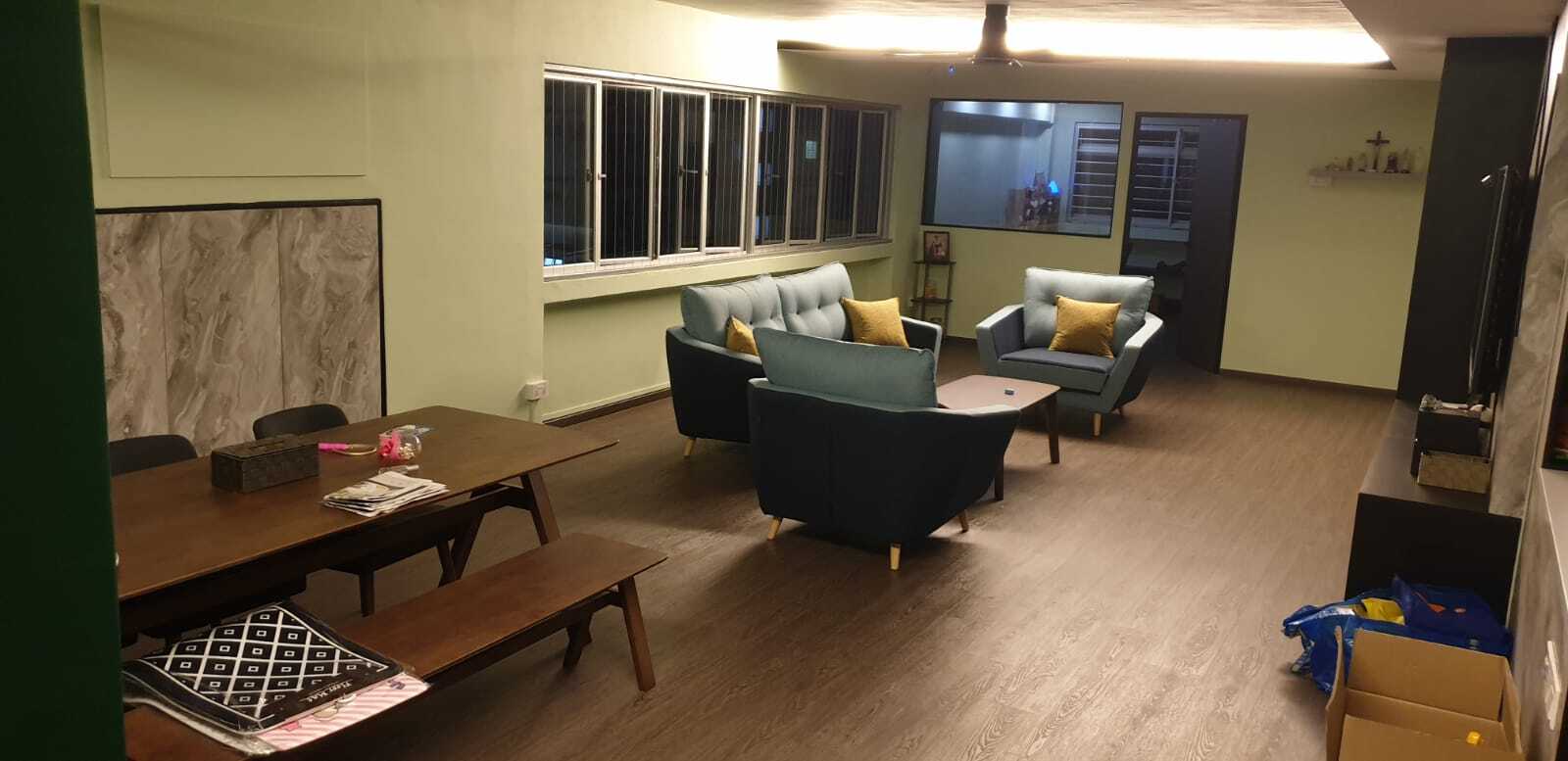
Furthermore, the EA is located in Tampines, so it’s between the couple’s parents in Yishun and Pasir Ris.
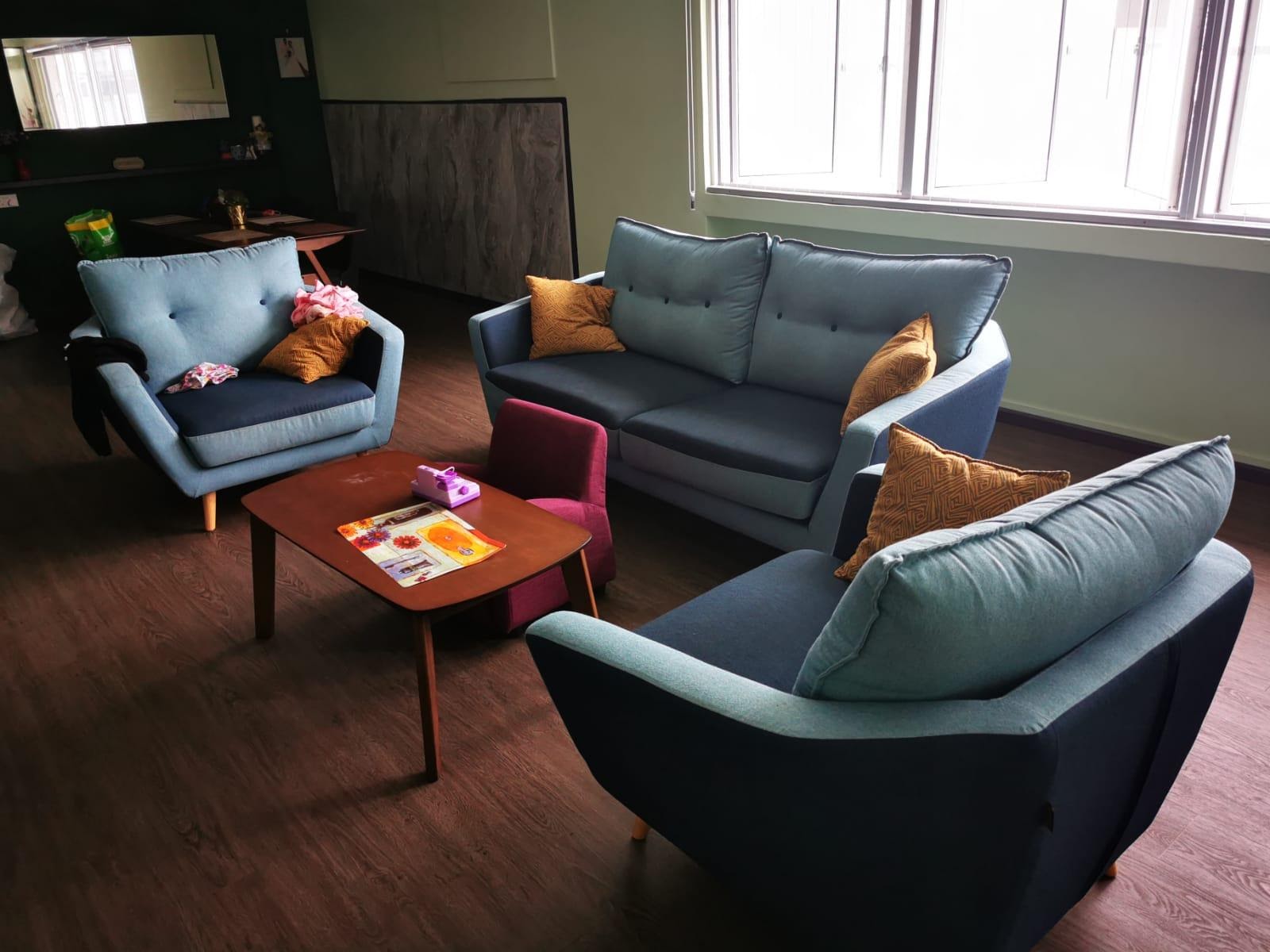
It wasn’t the first EA the family viewed however, and they had to view many others before finding it. Matthew says that they “saw many EAs in Tampines, but we did not find any to be spacious enough for our liking, until we viewed this particular stack in block 495.
We wanted a flat that was reasonably well-renovated and were prepared to pay a premium for it, as it would have been via CPF instead of paying cash for renovation.”
The EA that they ended up buying was actually a second choice; an earlier EA they were interested in was sold before they could buy it, as they hadn’t yet disposed of their BTO flat.
“We had to settle for our second choice, which was a high floor unit; it was cheaper but required major renovation work, as we could not find another layout to our liking”.
The family purchased the Executive Apartment for $635,000 in December 2019. At the time, it was 28 years old, with a remaining lease of 71 years.
More from Stacked
So many readers write in because they're unsure what to do next, and don't know who to trust.
If this sounds familiar, we offer structured 1-to-1 consultations where we walk through your finances, goals, and market options objectively.
No obligation. Just clarity.
Learn more here.
“My Neighbour Was Stealing Water From The Carpark” 7 Craziest Arguments We’ve Heard At Condo AGMs
On the one hand, we advise everyone to be present at condo AGMs, to keep track of what’s happening, and…
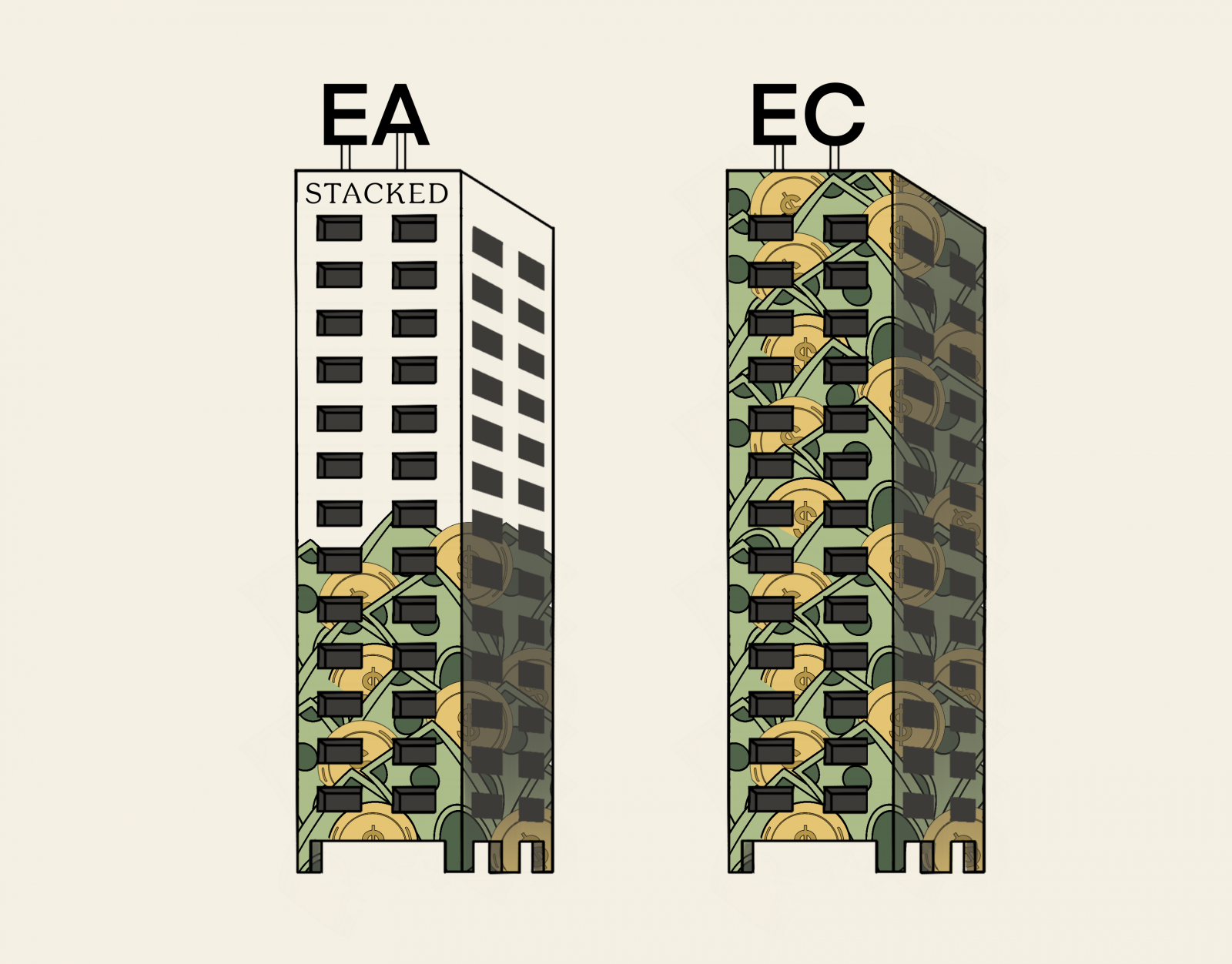
Note that, for the amount of space available, this is much cheaper than the typical EC.
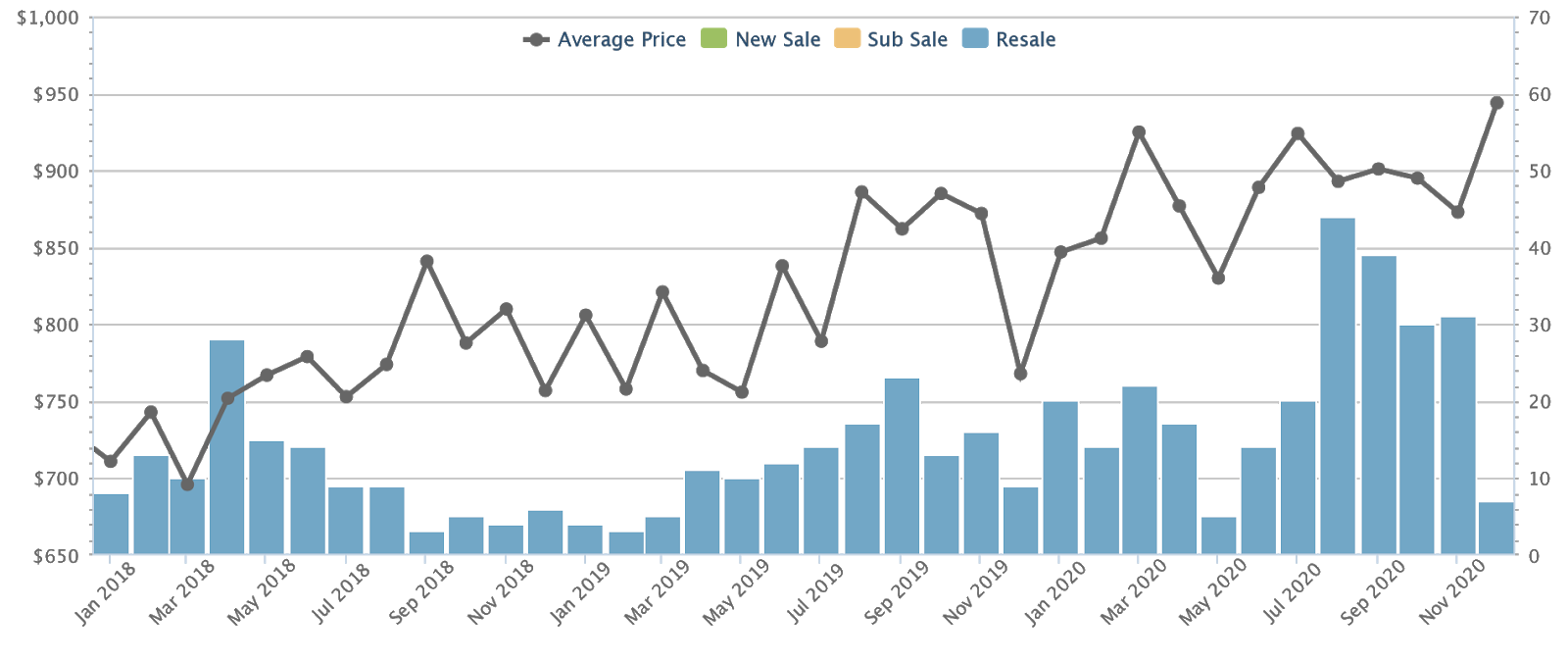
At the time they purchased the EA in December 2019, EC prices in District 18 (Tampines) were at $768 psf. An equivalent sized EC unit would have cost around $1,223,424; almost twice the price of the EA.
Matthew’s purchase price was also slightly lower than most District 18 executive flats at the time:
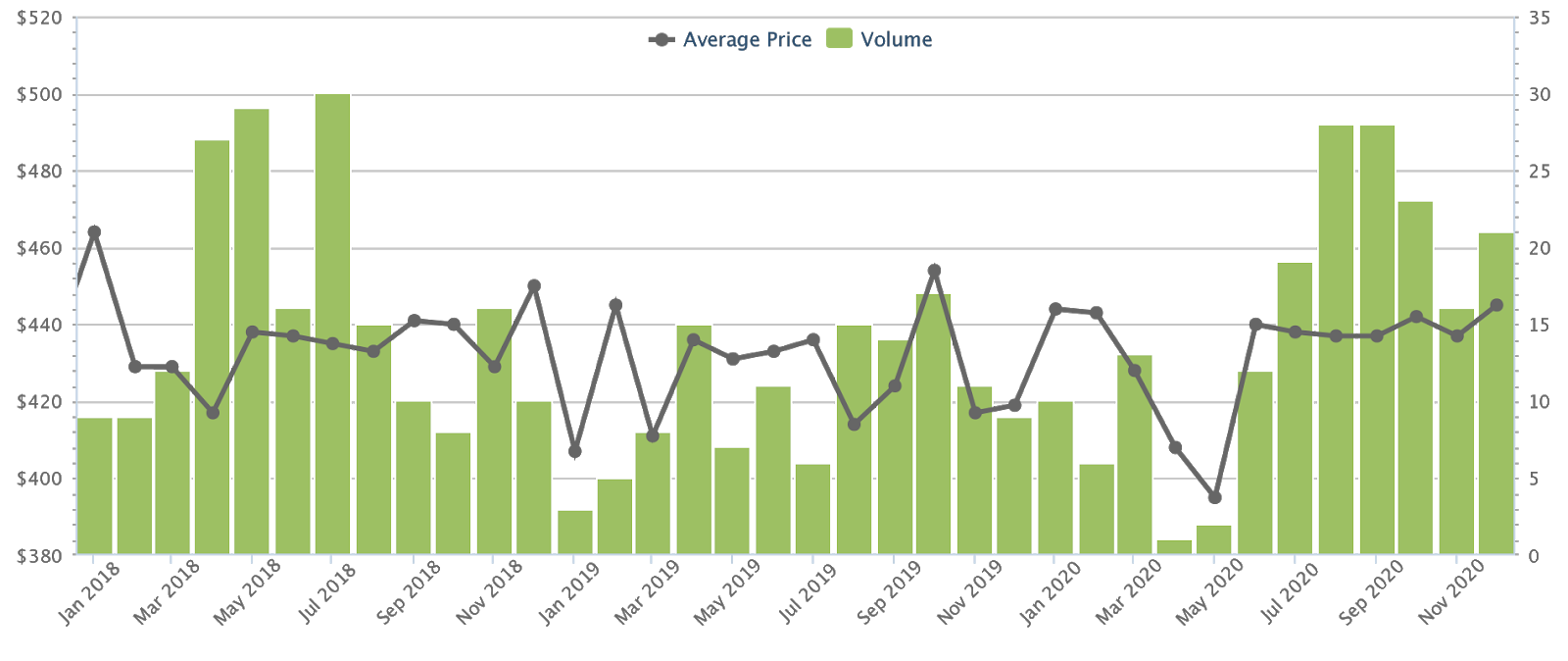
At $419 psf in December 2019, the average price for an executive flat (District 18) would have reached around $667,467.
(Prices now average at $445 psf, as of December 2020).
Moving in and the timeline factors
Timeline issues are one of the key concerns for upgraders; between the sale of your previous home, and the purchase of the new one, a lot can go wrong.
“The main challenge was coordinating the buying and selling process, as well as ensuring that major renovations could be completed before handover,” Matthew says.
“We had to ensure that there was sufficient lead time for us to move in, and we also had to extend our stay in the BTO by paying one month’s rent to the new owner, who was kind enough to allow us an extended stay.”
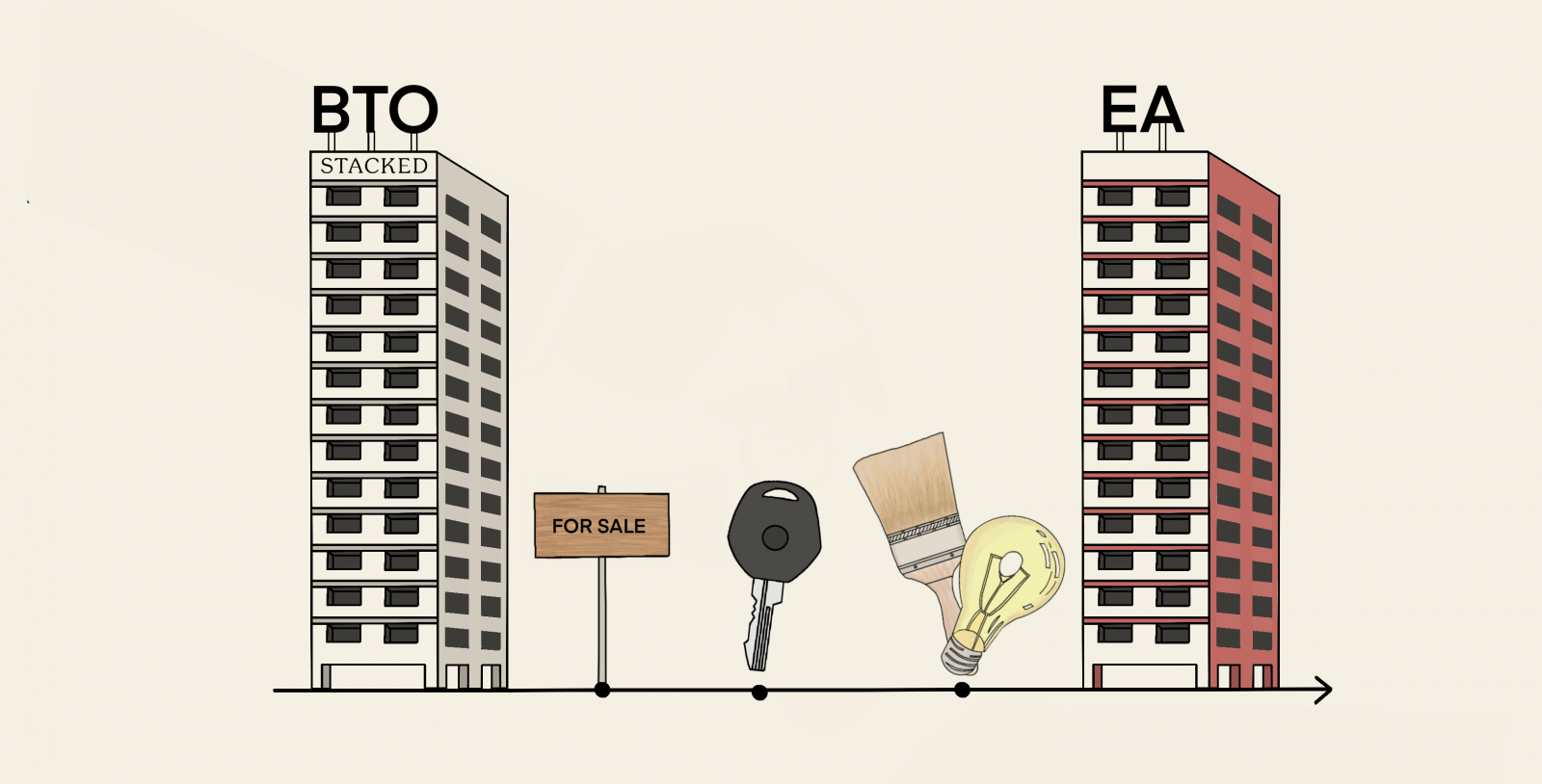
This was a challenge to Matthew, in that the rush meant “we did not have the luxury of comparing renovation quotes. We went back to our previous Interior Designer, so we paid a premium price for our renovation given our tight deadline; but it ensured that they could finish by the given date.”
When Matthew handed the BTO keys to the buyer in January 2020, the renovations were still not 100 percent complete. This was due to the festive season interfering with the work.
“But our designer was kind enough to prepare the master bedroom and toilet for us, to stay temporarily in the evening.”
For a period of three weeks, Matthew lived only in the master bedroom, with works going on in other parts of the flat. His wife and child stayed at their parents’ place, to avoid issues with dust and safety.
Although inconvenient, it proved useful in the end:
“It was somewhat beneficial to stay while renovation was still going on, as we could make adjustments to the placement of lights, fans, powerplugs, etc, which we would not have known if we had not yet started staying in the flat.”
Fortunately, the fittings and furnishings were also in place by December 2019 – about three months before Covid-19 closed the border with Johor Bahru.
All in, the renovations for the EA cost about $80,000, with $15,000 more spent on furniture, electricals, and fittings.
Some of the key lessons of moving to the EA apply to almost all upgraders
Two of the takeaways that Matthew pointed out were:
“I lost out on my preferred unit because my BTO unit was still not sold yet. My agent advised me to find a buyer for my place before placing a deposit for my preferred property.”
While it’s probably safer to find a buyer first (this ensures you won’t lose the deposit if you can’t sell your flat on time), do be aware that the delay can cost you the desired unit. There are some ways around this, such as negotiating for a longer Option To Purchase (OTP). If you’re in such a position, drop us a message and we may be able to help.
“Renovations can be delayed, and thankfully by buyers were kind enough to allow for an extension of stay.”
One of the issues you need to brace for, when moving into a resale unit, is slower – and sometimes more expensive – renovations. A new launch unit tends to be quicker to renovate, as white goods, flooring, etc. are already in place, and there’s no prior work to hack up and clear away.
As a rule of thumb, we usually tell buyers to prepare for renovation delays of up to a month. In Singapore, construction supplies and manpower mostly come from abroad; situations like Covid-19 can stall the process for a long time.
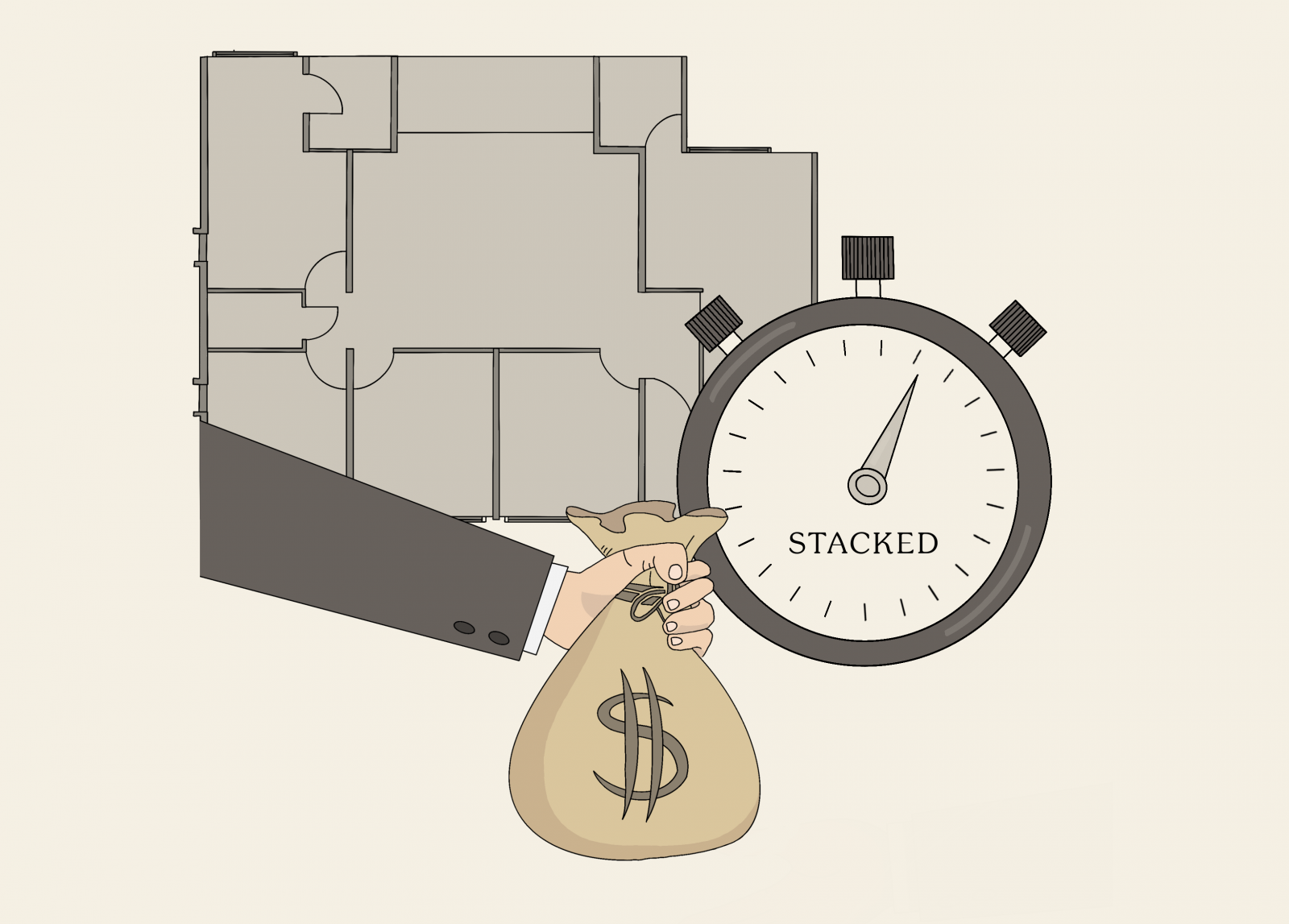
Advice for flat owners who are looking to upgrade
Matthew provided the following tips for those of you on the hunt:
- Start by finding flats with your preferred layout. They might be in a particular stack in a block, so u do not have to keep viewing so many flats in the estate; just keep an eye out for listings in that particular few blocks.
- Floor plans are very important, for visualisation. Request for them before going down for viewing.
- We initially wanted to sell our BTO flat at a much higher price, but we had no past data to rely on for our estate. So we had dropped our initial asking of $550,000 and eventually sold our BTO at $485,000. If you are fixed / firm on a particular price, you may lose out in securing your preferred unit that you have found. Time is of the essence!
(If you don’t have pricing data for your estate, contact us on Facebook; we can help dig out the latest transaction data for your area)
- It is okay to take a housing grant, if you plan to sell and move homes again, as the money goes back into your CPF, but if you plan to stay in the home long-term, it may be better not to take up any grants, to avoid accrued interest.
For families who need more space, but don’t want to blow the budget, an Executive Apartment could be an alternative “second step” compared to the usual ECs or very small condo units.
Couples who don’t intend to have children, or small families, probably won’t be as interested in an EA – not when they can go straight for something like a two-bedder condo unit.
However, larger families may find a suitably sized EC or condo out of reach as a second step. For these buyers, do remember that alternatives such as EAs are worth considering.
For more on asset progression, or if you’re still set on an EC / condo as your next stop, do follow us on Stacked. We’ll continue to seek out the experiences and lessons picked up by buyers in Singapore’s property market, to help you stay informed.
At Stacked, we like to look beyond the headlines and surface-level numbers, and focus on how things play out in the real world.
If you’d like to discuss how this applies to your own circumstances, you can reach out for a one-to-one consultation here.
And if you simply have a question or want to share a thought, feel free to write to us at stories@stackedhomes.com — we read every message.
Ryan J. Ong
A seasoned content strategist with over 17 years in the real estate and financial journalism sectors, Ryan has built a reputation for transforming complex industry jargon into accessible knowledge. With a track record of writing and editing for leading financial platforms and publications, Ryan's expertise has been recognised across various media outlets. His role as a former content editor for 99.co and a co-host for CNA 938's Open House programme underscores his commitment to providing valuable insights into the property market.Need help with a property decision?
Speak to our team →Read next from Homeowner Stories

Homeowner Stories We Could Walk Away With $460,000 In Cash From Our EC. Here’s Why We Didn’t Upgrade.

Homeowner Stories What I Only Learned After My First Year Of Homeownership In Singapore

Homeowner Stories I Gave My Parents My Condo and Moved Into Their HDB — Here’s Why It Made Sense.

Homeowner Stories “I Thought I Could Wait for a Better New Launch Condo” How One Buyer’s Fear Ended Up Costing Him $358K
Latest Posts

Singapore Property News Why Some Singaporean Parents Are Considering Selling Their Flats — For Their Children’s Sake

Pro River Modern Starts From $1.548M For A Two-Bedder — How Its Pricing Compares In River Valley

New Launch Condo Reviews River Modern Condo Review: A River-facing New Launch with Direct Access to Great World MRT Station



































0 Comments